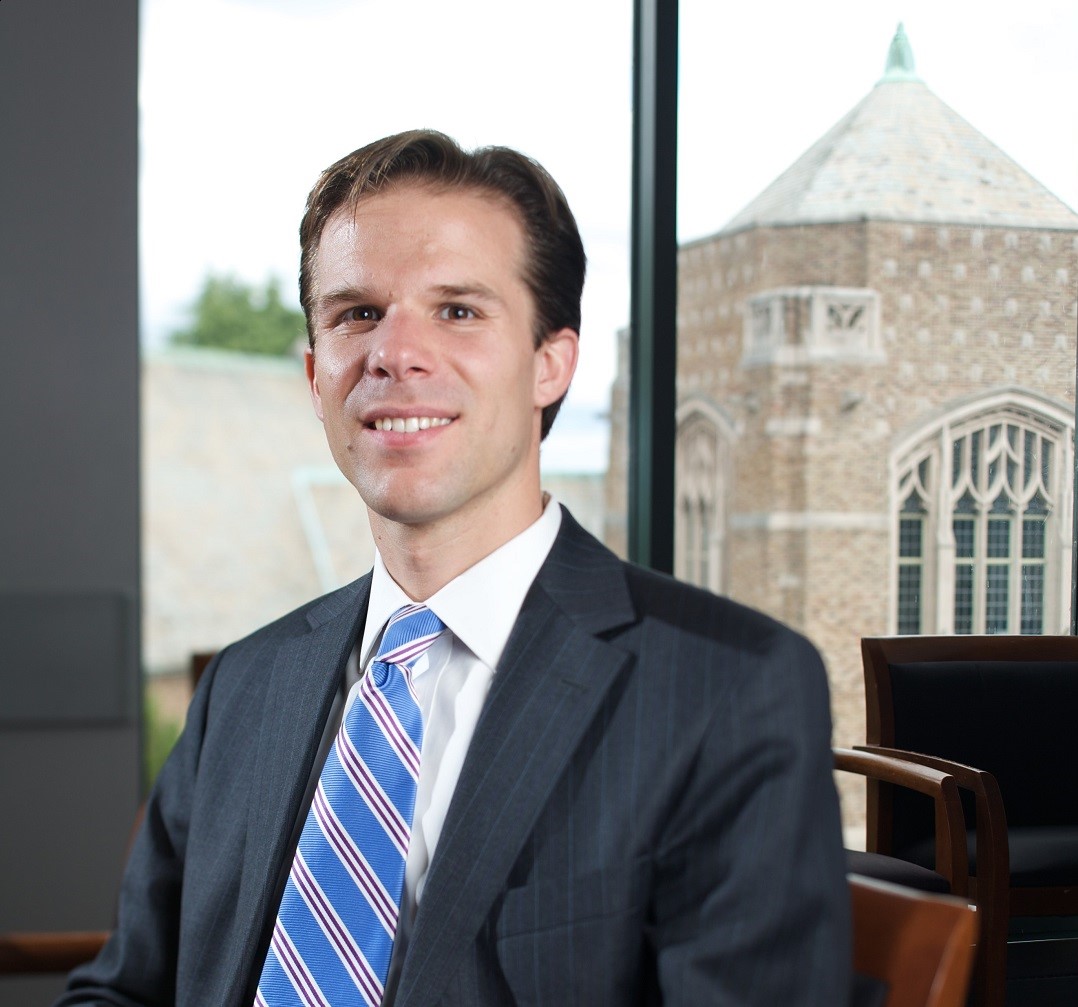Revisiting Friedman
What do Foster MBAs believe is the appropriate role of firms in society?
At the end of his most recent MBA core finance course, Thomas Gilbert, the award-winning associate professor of finance and business economics at the UW Foster School of Business, facilitated a discussion about the role of firms in society. Before the session, students completed an anonymized, optional poll to indicate their agreement with a series of thought-provoking statements such as:
- A firm’s only goal should be to maximize shareholder value.
- Laws should mandate board diversity.
- Maximizing customer value is consistent with maximizing shareholder value
Christina Fong, Foster’s associate dean for equity and inclusion, recently asked Gilbert about his preparation for the conversation and the context of his students’ responses.
Christina Fong: Why did you decide to introduce this topic into your course?

Thomas Gilbert: Discussing Milton Friedman’s 1970 New York Times piece on “the social responsibility of business is to increase its profits” belongs in every core finance class. I have been assigning it as a required reading since I joined Foster in 2008 and started teaching full-time MBA students. Over the years, I have noticed that students wanted more time to discuss shareholder versus stakeholder value maximization and I slowly made more space in the course for it… Since we are training the future business leaders of our economy, this topic will remain critically important probably forever.
How did you prepare to ensure the conversation would be productive, educational and inclusive?
Every year, I really try to stay out of the discussion and let the students talk to each other and discuss. This maybe is the hardest part as they inevitably want my opinion, but I want the diverse perspectives of all students to be put forth rather than my opinion. I also try to make sure that nobody monopolizes the conversation by cold-calling others. Lastly, I try to make sure we extrapolate from personal examples to make more general statements and try to bring data forward rather than anecdotes. But this is all hard and continues to be a work in progress.
This year, for the first time, I asked the students to fill in an agree/disagree optional survey with five questions about shareholder value maximization, customer value maximization, quarterly earnings releases, board diversity, and corporate charitable giving. I showed the results of the survey, one question at a time, as the class discussion moved forward.
What did the survey reveal?
Here is a quick summary of the poll results:
- 58% of respondents disagreed with the notion that firm’s only goal should be to maximize shareholder value.
- 83% agreed that maximizing customer value is consistent with maximizing shareholder value.
- 80% agreed that the mandatory reporting of quarterly earnings is consistent with maximizing shareholder value.
- 54% agreed that the law should mandate board diversity.
- 55% disagreed with the notion that donating corporate cash to charitable organizations is consistent with maximizing shareholder value.
The ensuing in-class discussion was very constructive and respectful. What was enlightening to everyone was that there is a wide diversity of opinions in the full-time MBA cohort!
Do you think that attitudes of Foster students on the role of firms in society have evolved over the past decade or so?
Yes, student attitudes have evolved. But maybe even more importantly, their willingness and enthusiasm for discussing the role of firms in society has increased dramatically. They want to read about it, think about it and talk about it. And that is good. We need more dialogue.
There is no clear right or wrong answer. We know that there are tradeoffs and that managers in for-profit companies (i.e., our students) must evaluate these tradeoffs and make decisions that balance these tradeoffs. And over the past decade, society’s assessment/measurement of the benefits and costs of hiring practices, lobbying, earnings management, board diversity, etc. has evolved. As a result, while students understand that a for-profit company must make a profit to stay alive (and that hasn’t changed since Friedman), they want to make sure that we are not trading off carbon emissions for another penny of quarterly earnings.
Can the Friedman thesis coexist with efforts toward more sustainable and socially responsible business objectives?
What is most important—to me as an instructor and to all students—is to realize that there is a wide diversity of views on these topics. We are not in a world where 90% of our students believe that Milton Friedman was wrong. We need to respect everyone’s views, listen to them, understand them, discuss them and, hopefully, come to a compromise. Since it is all about tradeoffs, I know our students can be leaders in helping firms make 5-10% course corrections to ensure that their missions are consistent with these tradeoffs. But I do not think that we need 90% course corrections and the survey I run in class reflects that.
